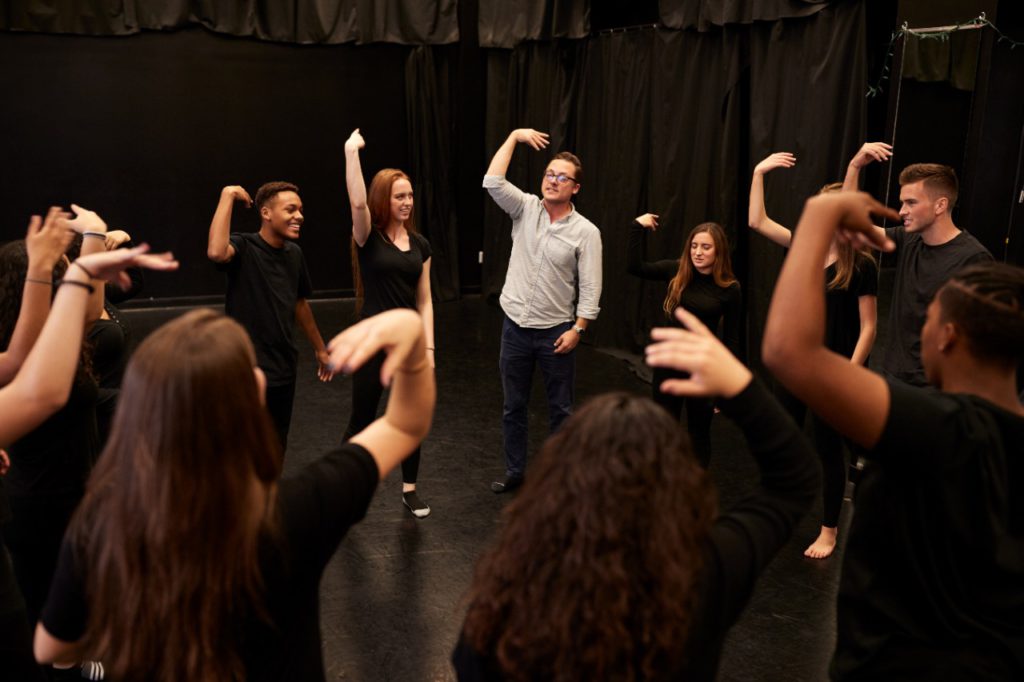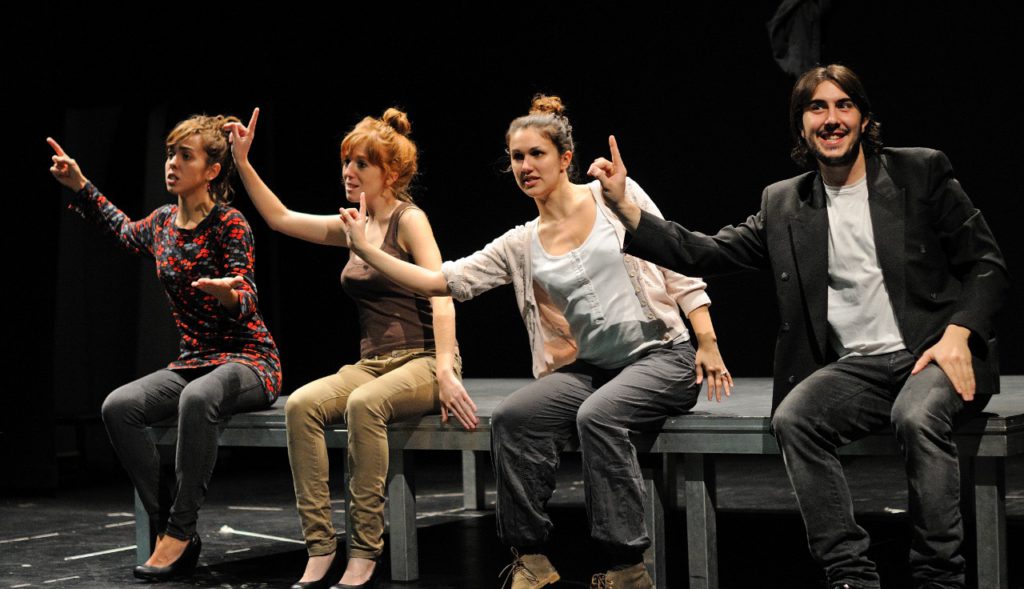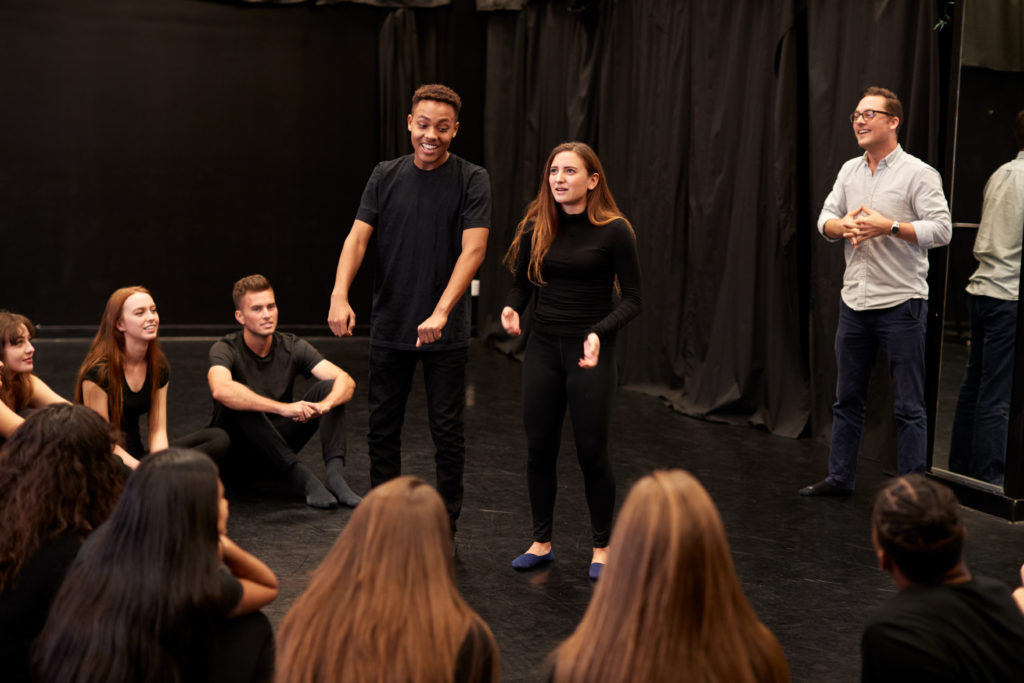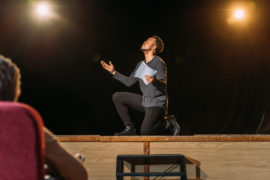Improvisation, or “improv” for short, in a performance consists of comedic sketches and scenarios which are made completely in the moment, without the help of a script. A performer immediately formulates an act, plot and dialogues without a rehearsal.
Improv has to be unexpected, spontaneous and candid. The ability to work with any situation thrown at an actor, add humorous elements in different characters and to simply adapt will make one a versatile actor or comic. A good improvisation technique can make a great show even better.
To get better at improv, one requires consistency, observation and innovation. Adding these elements can help a performer to establish a creative imagination and mould their character to any situation.
Be familiar with your own capabilities:
An artist should always try to record their performances. One can always improve dramatically by watching themselves later and then focusing on areas that need work.
● It is a great technique of brainstorming and generating creative ideas before putting them out in front of an audience. It also teaches that it is completely fine to try and fail, as one doesn’t always have to be extraordinary in improvs.
● Don’t focus too much on emotion, be it fun or grief. Everything on stage should come naturally, but creatively. It is of little help to be driven by a need to please a given audience.
● A successful performer is always aware of his own flaws and shortcomings. “Applying a critical eye to your own work tries to ensure that you produce the best work you possibly can”.

Take risks and try getting out of your comfort zone:
An improv is thought to be super fun and easy from a distance, but it is quite difficult in reality. Improv offers spontaneity and requires the actor to always be on their toes.
● Work on emotions and characters in which you are not the most comfortable.
● Incorporate a wide array of acting skills and be confident to approach a character with various other angles.
● Keep looking for inspiration in movies, books, music and random stories for a creative thought process and let the inspiration run wild!
The audience can easily identify when the performer is not ‘keeping it real’ and is trying hard to just fit into different personality attributes. The best solution is to take risks. Be present in the moment and to work on the problem areas until they become valuable assets in the improv.
Don’t focus too much on the end result:
The key is to act first and think later. If too much time is taken by a person to think about a creative idea during the act, the scene may not be presented in the best possible and organic way. No matter the situation, be vulnerable on stage and interact with the audience by making eye contact, which makes the act more credible.
Improv requires a sense of instinct and it’s crucial to be aware of the other actor’s techniques and patiently listen to each dialogue during the performance. Listening to other actors will decide the next move. So an improv actor should always live in the moment.
● Never perform under pressure, or be too self-conscious.
● Half the job is done when you decide on a character and think of a setting where the scene takes place.
● Push your limits and learns through mistakes. The most embarrassing moments on stage will make you better prepared for tougher situations in future.

Apply real-life situations:
Many renowned improv actors and comedians come up with different characters on their own or they simply try to impersonate others. One should be able to draw inspiration from different people, be it a funny relative or a neighbour.
● You can choose a character and incorporate their mannerisms, mimic their voice and characteristics.
● Observing different people that you encounter on a regular basis can help a lot during an improv and can make the act more interesting to perform.
Try Improv Exercises:
Improvisation exercises can be done solo or in a group setting. Some exercises are “Yes, And?”, “Spontaneity”, “Group Mind” and “Listening”. Practice each exercise, focus on how to make an improv engaging, and find different ways to respond to a single emotion.
● Improv is all about exploring what works and what does not work, so you should never be afraid to adopt different styles try different techniques.
● Always remember that improvisation is a skill that can be only learned through experience.
● Improv exercises help in personal and interpersonal development in real life as well.
Learn acting from the Indian cinema legend Manoj Bajpayee(The Family Man, Satya, Gangs of Wasseypur). Well known for his method acting and intense characters, in his online acting class, he has shared all his experience, methods, tips and tricks to guide you to become a great actor! Check out his unluclass trailer now.







